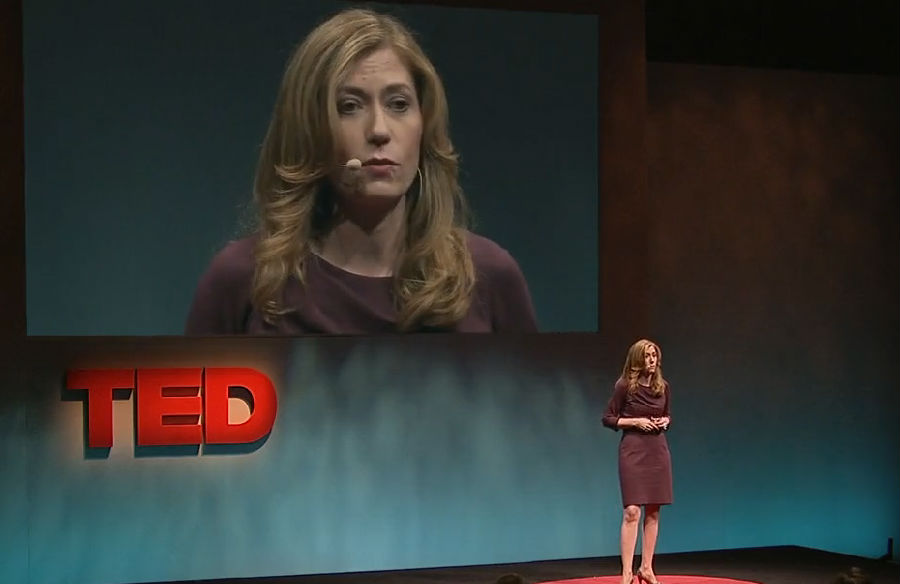The second thing that happened is that I spent the day in the Camden, New Jersey police department.
第二件事是我在卡姆登的新泽西州警察局耗了一天。
Now, at that time, Camden, New Jersey, was the most dangerous city in America.
当时,新泽西州的卡姆登是美国最危险的城市。
I ran the Camden Police Department because of that.
我跑了一趟卡姆登警察局就是因为这个原因。
I spent the day in the police department, and I was taken into a room with senior police officials,
我在警察局待了一整天,被带到了一个高级警官待的房间,
all of whom were working hard and trying very hard to reduce crime in Camden.
那里所有人都在努力工作,并很努力的试图减少卡姆登的犯罪活动。
And what I saw in that room, as we talked about how to reduce crime,
在那个房间里,当我们谈到如何减少犯罪,
were a series of officers with a lot of little yellow sticky notes.
有很多拿着小小的黄色便笺的警官。
And they would take a yellow sticky and they would write something on it and they would put it up on a board.
他们会揭下一张黄色便笺,在上面写点东西然后把它贴在板儿上。
And one of them said, "We had a robbery two weeks ago. We have no suspects."
其中一个警官说,“我们有一宗劫案发生在两个星期前但没发现疑犯。”

And another said, "We had a shooting in this neighborhood last week. We have no suspects."
另一个说:“上周在这附近发生了一场枪击事件,没发现疑犯。”
We weren't using data-driven policing. We were essentially trying to fight crime with yellow Post-it notes.
我们未曾使用过数据分析来维持治安。我们基本上在试图用黄色便利签打击犯罪。
Now, both of these things made me realize fundamentally that we were failing.
这两件事让我意识到从根本上说,我们过去一直表现欠佳。
We didn't even know who was in our criminal justice system, we didn't have any data about the things that mattered,
我们甚至不知道有谁涉及到刑事犯罪,我们没有相关重要事件的任何数据,
and we didn't share data or use analytics or tools to help us make better decisions and to reduce crime.
我们未曾共享数据,使用分析技术或分析工具,以帮助我们做出更好地判断并减少犯罪。
And for the first time, I started to think about how we made decisions.
我第一次开始思考我们是如何作出决定的。
When I was an assistant D.A., and when I was a federal prosecutor,
当我还是助理地方检察官,和联邦检察官的时候,
I looked at the cases in front of me, and I generally made decisions based on my instinct and my experience.
我看着面前的那些案件,我所做出的决定通常是依据我的直觉和我的经验。












